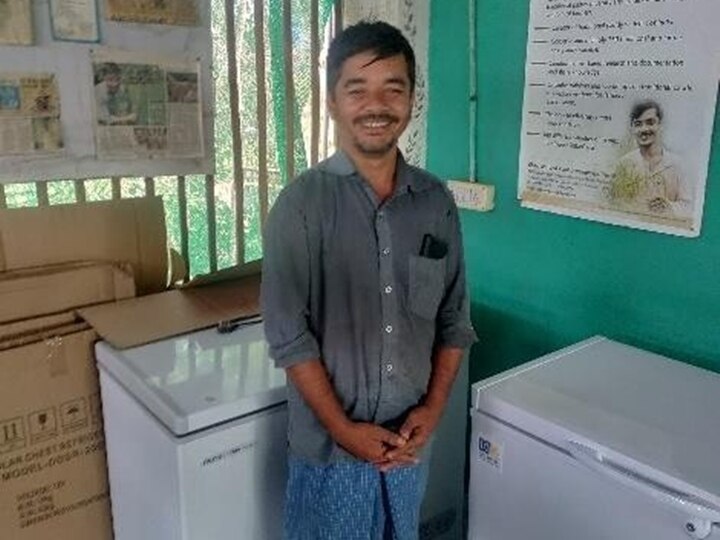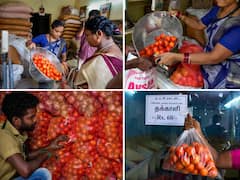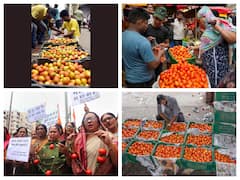Restoring Extinct Seed Varieties And Encouraging Seed Production At Farm Gate With Sustainable Cold Chain
With the impact of climate change, farmers are increasingly looking for solutions to adapt our food systems and ensure the sustainability of crop varieties.

Crop and varietal diversity are essential to global food security and nutrition. They provide various options for people living in marginal areas, enabling them to make the best use of their resources and boost their livelihoods. Moreover, diversification increases soil fertility, reduces the risk of crop failure due to diseases or pests, and helps farmers adapt to climate change. Diversity is an integral part of our agricultural system and is essential for ensuring the sustainability of our food supply.
Farmers and indigenous peoples have been safeguarding diverse crop species and varieties for centuries on their farms, which are often located in remote areas. By protecting these diverse crops, we can ensure that future generations have access to the same variety of nutritious food options.
With the impact of climate change, farmers are increasingly looking for solutions to adapt our food systems and ensure the sustainability of crop varieties. One promising solution lies in the genetic traits of different types of plants. By understanding and preserving these unique genetic traits, we can revive extinct resilient crops that can withstand changing conditions and better adapt to climate change and mitigation.
Agriculture has been the backbone of India's economy for centuries, and it continues to be a significant contributor today. According to Census 2011, over 54.6 per cent of India's entire workforce is involved in farming and related activities, with 86 per cent being small and marginal farmers.
The agricultural industry is essential to the nation's economic development as it provides food security and generates employment opportunities for millions of people. The agricultural sector can further boost India's economic growth with improved farming techniques, efficient market access, new cold-chain technology, and increased government support.
India is one of the most densely populated countries in the world, with a total geographical area of 328.7 million hectares. As per the Land Use Statistics 2016-17, India has 139.4 million hectares of reported net sown area and 200.2 million hectares of gross crop area. This means that a significant part of India's land is being used for agricultural production, making it an important sector for its economy and food security.
India has a notable agricultural past, with over 110,000 varieties of rice recorded before 1970. However, the advent of the green revolution and its focus on monoculture and hybrid crops has led to a significant decline in this diversity - reducing the number of varieties to just 6,000 today. This loss is concerning - not only for the past but also for our future.
My recent journey to Karnataka was an eye-opening experience. I was amazed by the sheer dedication and determination of the local people in restoring an almost extinct variety of paddy. The amount of time and energy have taken for this restoration is a testament to the commitment of the local communities towards preserving their culture and heritage.
Sayyed Ghani Khan is one such farmer from Mandya, Karnataka, making great strides in preserving and restoring indigenous rice varieties. He is determined to bring back traditional varieties of rice that are better suited to the changing climate and increasing temperatures. His work is instrumental in helping farmers find climate-tolerant restored rice varieties that survive despite unpredictable weather patterns.
Ghani has been preserving and replicating precious paddy crop seeds for the past decade on his 2.5-acre farm. His efforts have resulted in safeguarding and replicating more than 1350 varieties of paddy, many of which are shared with nearby farmers to encourage and expand crop diversity and sustainability. His dedication to preserving these varieties helps ensure that this vital agricultural resource is available for future generations.

Seed preservation is of paramount importance for long-term food security and crop sustainability. The quality of seeds can be maintained by controlling the environment in which they are stored (temperature and humidity). Ghani has a solar-powered 50 litre freezer, which is an excellent solution as it maintains optimal temperature and humidity levels and helps reduce electricity costs.
With such a freezer, farmers can store their seeds securely without worrying about spoiling or compromising the quality. India is home to a diverse range of native crop species that are under threat of extinction due to climate change and human activity. A decentralized, sustainable cooling system could be established in local areas to protect and revive these species. This system would help preserve the seed and unique genetic material of these crops and promote their revival by providing the necessary environmental storage conditions.
In addition, this system could also help reduce dependence on global food sources and create a more self-sustaining agricultural environment in India.
Further, small and marginal farmers are often challenged financially during the crop sowing season. Due to a lack of resources, they often turn to local traders for loans to buy essential seeds, thus deepening their debt cycle. This leads to an increased financial burden and impacts their ability to produce a quality harvest and yield a good return on their investment. The emergence of traders in the agricultural market has had a devastating impact on farmers. Due to their monopolistic control over the market, prices for farmers have dropped significantly, trapping them in a cycle of debt. With little control over their livelihoods, these farmers struggle to survive in an unforgiving market.
For many farmers, seed production is a cost-effective and reliable way to ensure the availability of quality seeds for future crops. With the help of decentralized, sustainable cold storage, farmers can store their produced seeds for extended periods without worrying about spoilage or loss. This helps them reduce their reliance on buying seeds from the market and provides them with a more secure source of seed stock for future harvests.
India's cold chain industry can potentially revolutionize the agricultural sector. It can promote crop diversity, increase farmer incomes and reduce food wastage. By providing a steady temperature- controlled environment for the transportation, storage, and distribution of perishable agricultural goods, sustainable cold chains can help small and marginal farmers benefit from their harvests in a timely manner.
(The writer is Senior Research Associate, Alliance for an Energy Efficient Economy)
[Disclaimer: The opinions, beliefs, and views expressed by the various authors and forum participants on this website are personal and do not reflect the opinions, beliefs, and views of ABP News Network Pvt Ltd.]






































